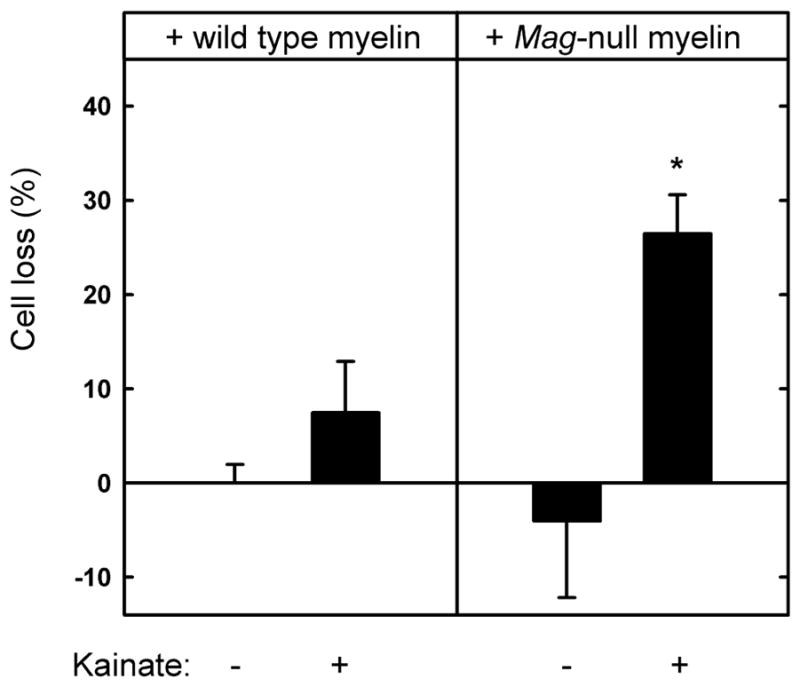Fig. 5.

Myelin extract from Mag-null mice has diminished capacity to protect hippocampal neurons from kainic acid-induced excitotoxicity. Hippocampal neurons were plated on surfaces adsorbed with detergent-extracted proteins from wild type or Mag-null mouse brain myelin. After 48 h, the medium was replaced with fresh medium containing 130 μM KA. After an additional 24 h, the cultures were incubated for 30 min with medium containing propidium iodide and then fixed and stained with TUJ1 mAb. Cell survival (mean ± SEM) was quantified (as described in the text) and normalized with respect to control surfaces. Live cell counts from 4 microscopic fields from each of 9 microwells from three independent experiments were averaged. Statistically significant KA toxicity was only observed when cells were plated on Mag-null myelin (*, p < 0.02 compared to matched culture in the absence of KA). The average number of live cells on Mag-null wells in the absence of KA exceeded those on control cells, resulting in negative values, although the difference from zero (equal to control wells) was not statistically significant.
